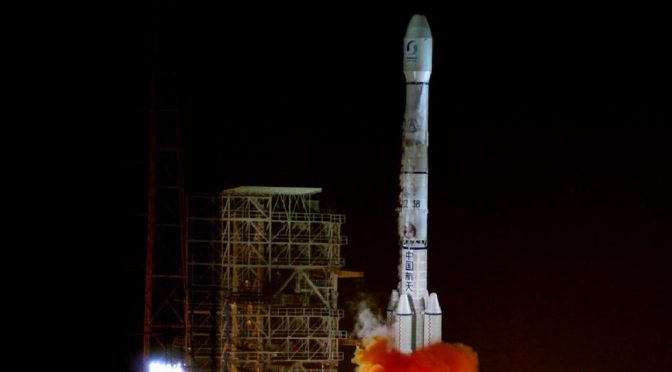Almost 50 years after Congress voted on limiting the President’s power to initiate nuclear war, a half century after an intoxicated Commander in Chief reportedly called for nuclear strikes, and 30 years after the Cold War and its conversation about nuclear command and control ended, today the nation is again discussing nuclear launch authority. In… Continue reading Nuclear Command and Statutory Control
Category: Vol. 11 No. 2
Reordering the Law for a China World Order: China’s Legal Warfare Strategy in Outer Space and Cyberspace
As the United States and China hurl toward a potential Thucydides Trap, the Chinese government has steadily laid groundwork as a global leader in emerging technologies. Maj. Bret White’s article examines Chinese thought as to that country’s place in the world: a leader in some respects; an outcast in others – but always an innovator.… Continue reading Reordering the Law for a China World Order: China’s Legal Warfare Strategy in Outer Space and Cyberspace
The Citizenship Hook: Obligations to British and French Foreign Fighters Under the European Convention on Human Rights
The rise of ISIS was characterized by unprecedented numbers of Western citizens traveling across the globe to fight for the “caliphate.” Their capture created a humanitarian crisis in the region: what to do with those citizens who were captured by the Iraqi and Syrian governments? European governments, the UK and France in particular, have been… Continue reading The Citizenship Hook: Obligations to British and French Foreign Fighters Under the European Convention on Human Rights



